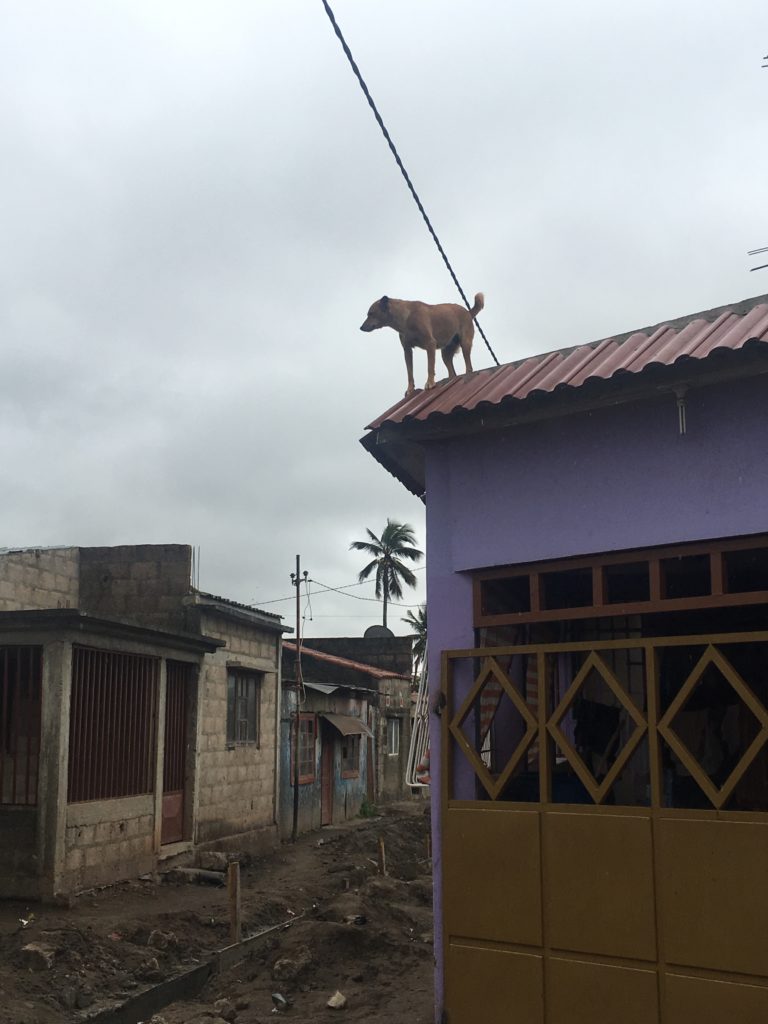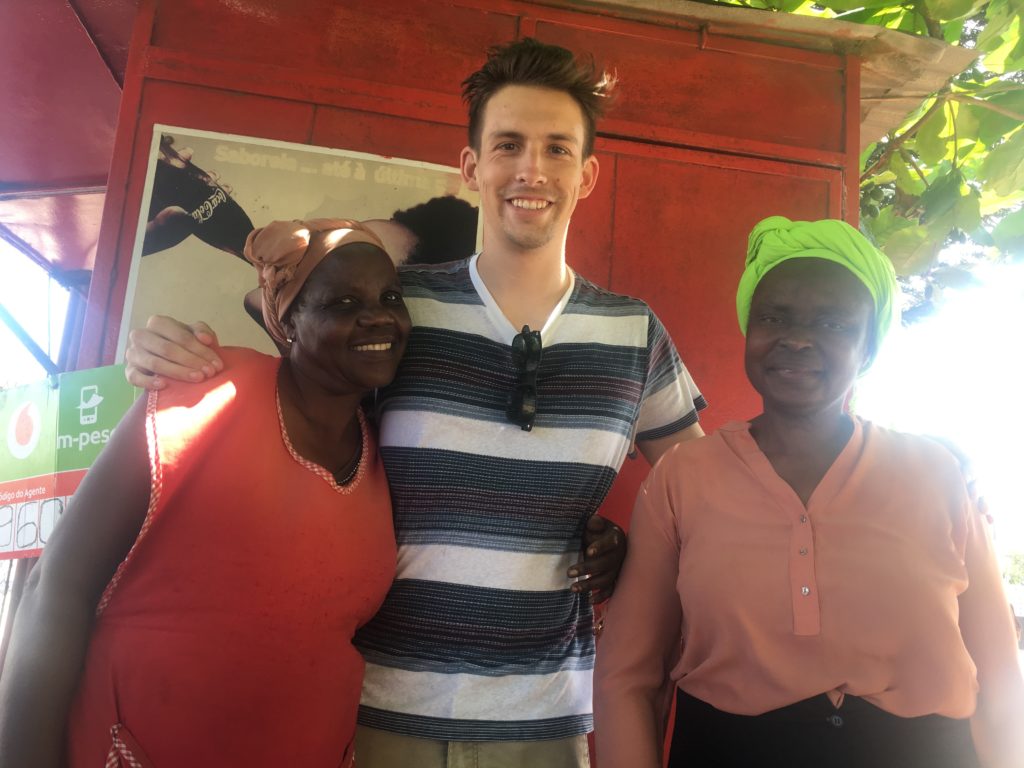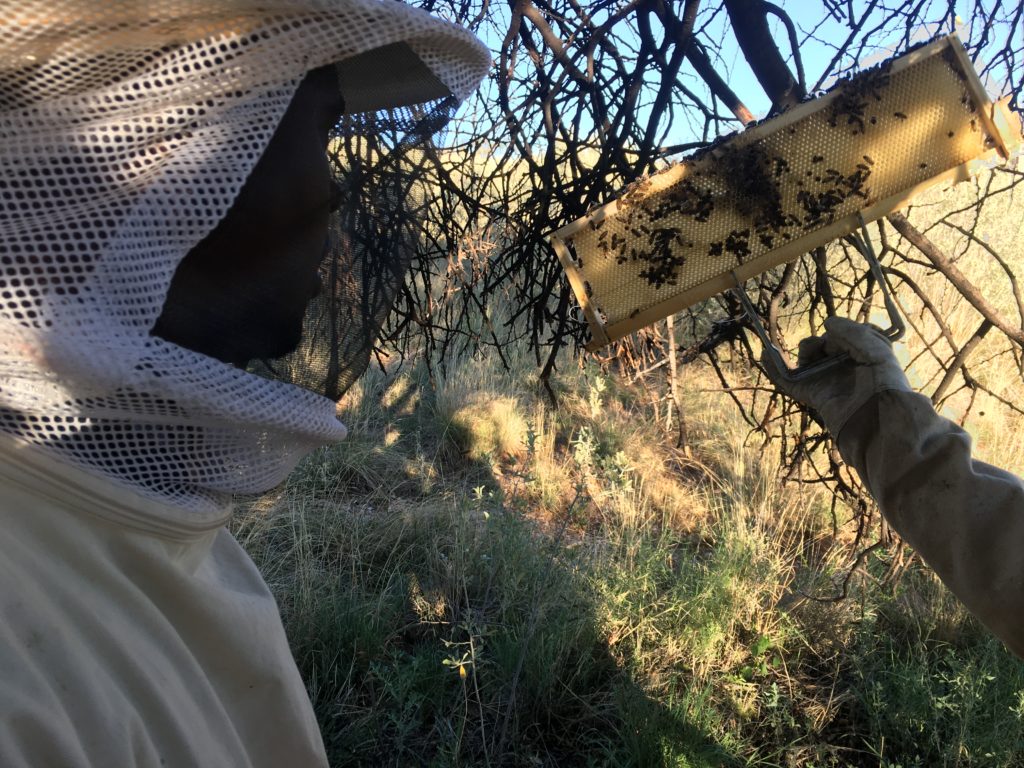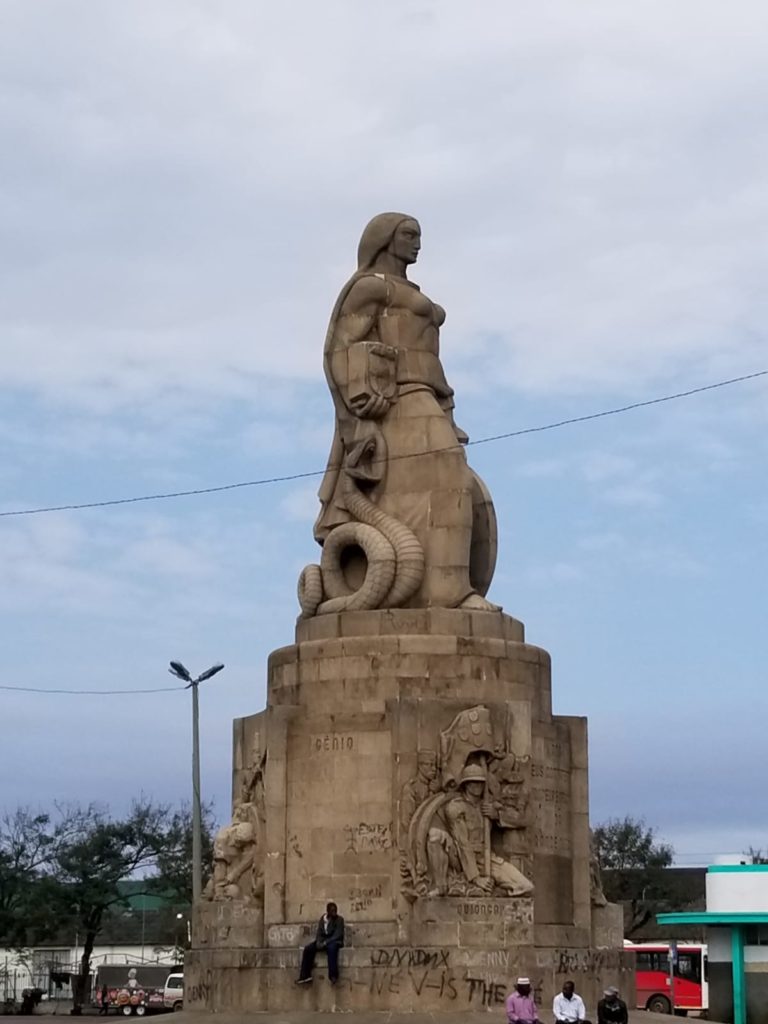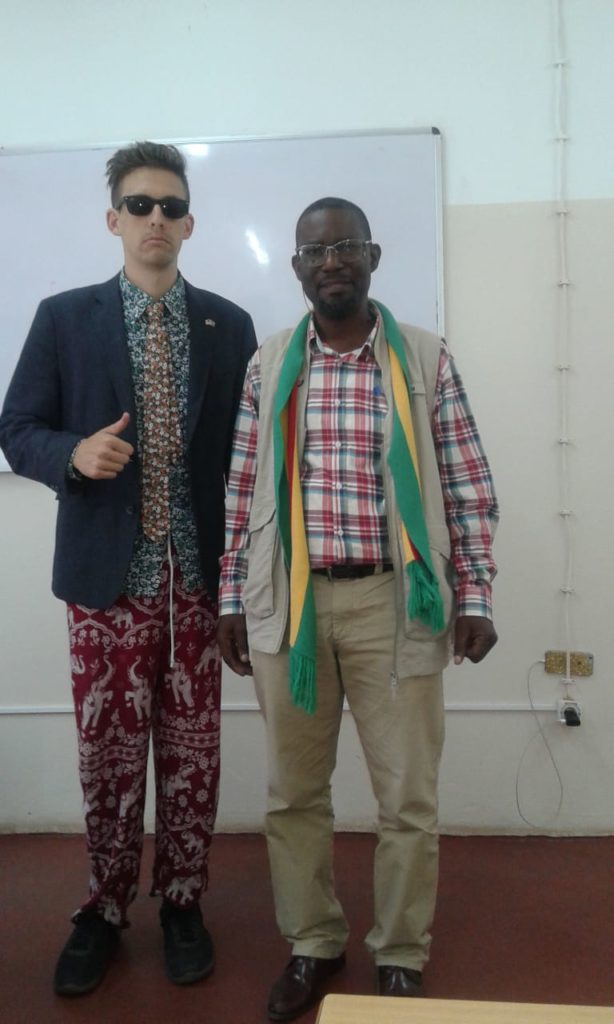

This a post by guest blogger Michael Johnson (IPED ’18) current recipient of the David L. Boren Fellowship.
In order to build upon my learnings from the Fordham IPED program and my second M.A. in Economics – as well as return to my favorite region of the world – I submitted a proposal to become a David L. Boren Fellow and study Portuguese in Mozambique. I developed an affinity for southern Africa through my two years of Peace Corps service in Namibia, studying emerging markets in South Africa via an IPED exchange program and working on development projects in the region at the Millennium Challenge Corporation. Fortunately, I was accepted into the Mozambican Boren program and arrived in the capital city of Maputo in August 2018.
There I began taking language classes at the Universidade de Eduardo Mondlane as well as courses in Mozambican culture and history. Although I had two months of exposure to Portuguese before landing, I was quite linguistically overwhelmed upon arrival. Yet, thanks to my daily four hour intensive language instruction, nightly dinners with my host mother and new found friends at the university, I adapted quickly. Full immersion in Mozambican culture allowed me to complete the first portion of my fellowship and graduate from the university program at an intermediate level.
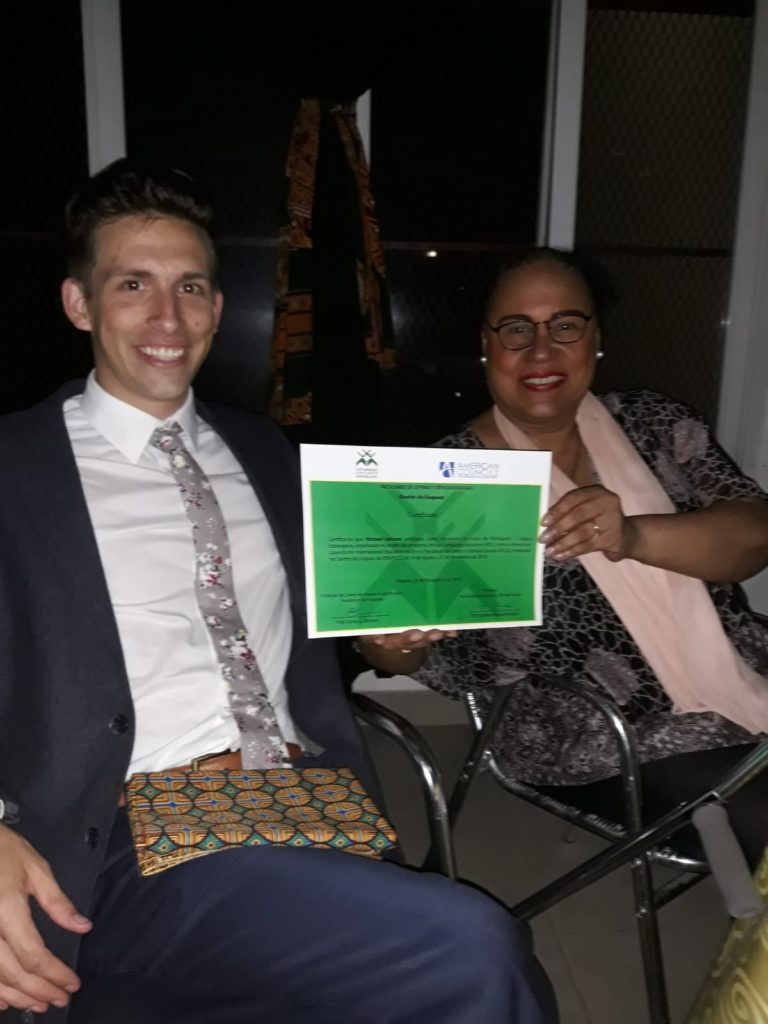
Being back in southern Africa has allowed me to work on projects I am passionate about while pursuing my career in international development. Dr. Bernard Chiwome, a former colleague from Namibia, recruited me to help develop his company AgriProject – an organization working toward regional food security and promoting efficient food production through the modernization of rural farmers. When not studying Portuguese or working in Maputo, I assist the project in business development aspects such as proposal writing, project planning, communications and financial accounting.
Currently, AgriProject acts as a livestock fertility consultant improving the productivity of commercial and small holder farms as well as supports a beekeeping project generating income for women in rural Namibia through honey production. Through our beehives we are also developing a data-based application that tracks colony health in real-time that can be used to not only monitor bees but also to inform decision making around climate change uncertainties. I have made a few trips to Namibia in 2018 and will make a few more throughout the remaining duration of my Boren Fellowship until June.

Starting this year, my language studies have been reduced to allow me to also work on a USAID project entitled SPEED+ (Supporting the Policy Environment for Economic Development) being implemented by DAI in Maputo. SPEED+ is helping Mozambique create a better business environment to attract investment, expand markets, and reduce costs for businesses and citizens of Mozambique, thus contributing to broad-based and inclusive economic growth. The main targets for improvement are agriculture, trade, power, water supply and biodiversity conservation. The project engages with both the private sector and government entities providing a great opportunity for me to utilize and hone my skills gained from my political economy coursework at Fordham. I will be occupying my time in the office with sector specific economic analysis, project monitoring and evaluation as well as monetizing benefits/impacts to be reported to USAID.
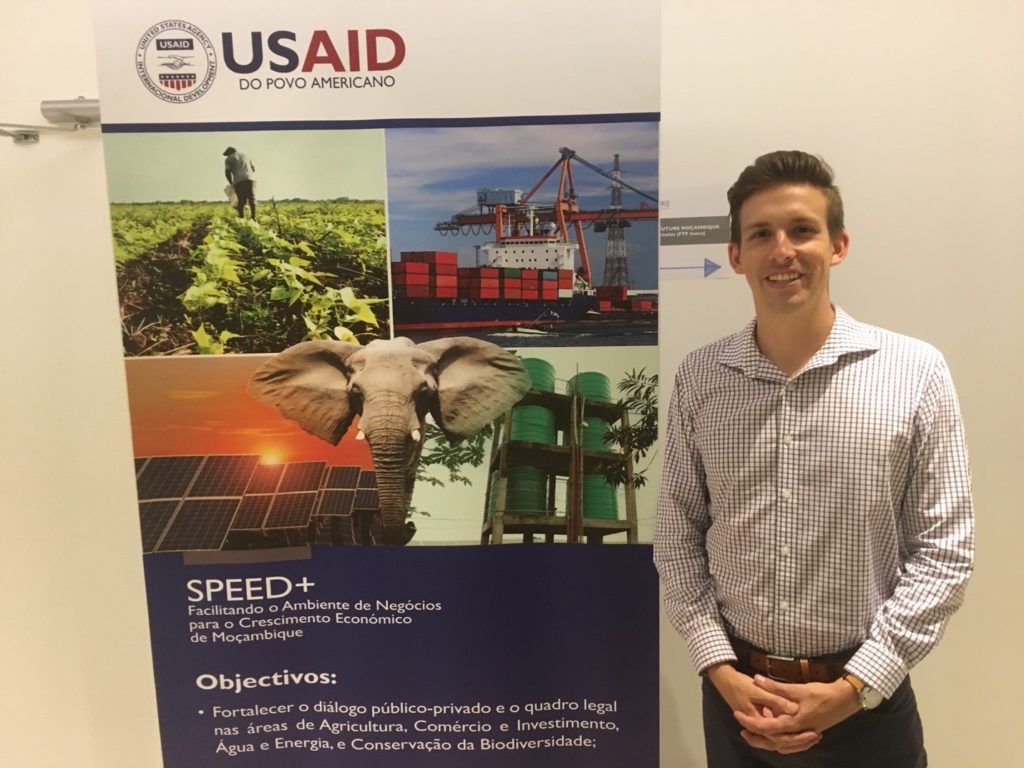
After the fellowship is complete, Boren requires fellows to work for the US Government in their area of expertise. I hope to use this opportunity to work on USG development projects in southern Africa or transition to a domestic career in DC. I highly recommend the David L. Boren Fellowship to all IPED students as its flexibility allows for a personally tailored experience that can be shaped to fit career interests and provides many avenues in government work afterward.

